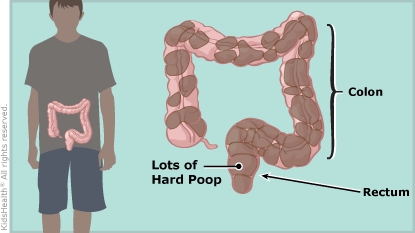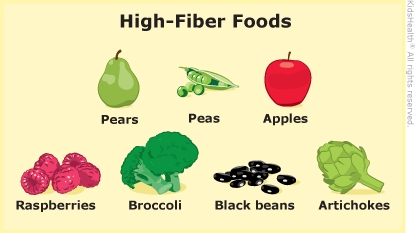Constipation means having fewer bowel movements (poops) than usual, or having dry, hard, or difficult-to-pass poops. "Chronic" means your child has been constipated for a long time. When someone has chronic constipation, the poop fills up and stretches out the colon and rectum (parts of the intestines). This makes it hard for the intestines to work normally. Treatment begins with "cleaning out" the intestines and starting medicines to help poop pass easily.



Your child:



What is disimpaction? Disimpaction is when poop is cleaned out of the intestines. The clean-out happens by giving your child one or more of the following:
How does fiber help constipation? Fiber, also known as roughage, can't be digested, so it cleans out the intestines. Fiber from a person's diet increases the size of the poop and softens it. This makes it easier for poop to pass. Fiber works best when it can absorb water, so it's important to drink lots of water.